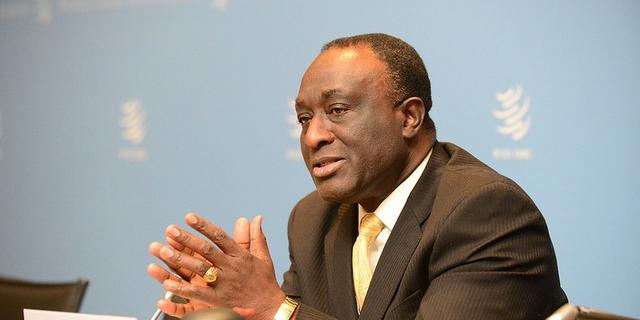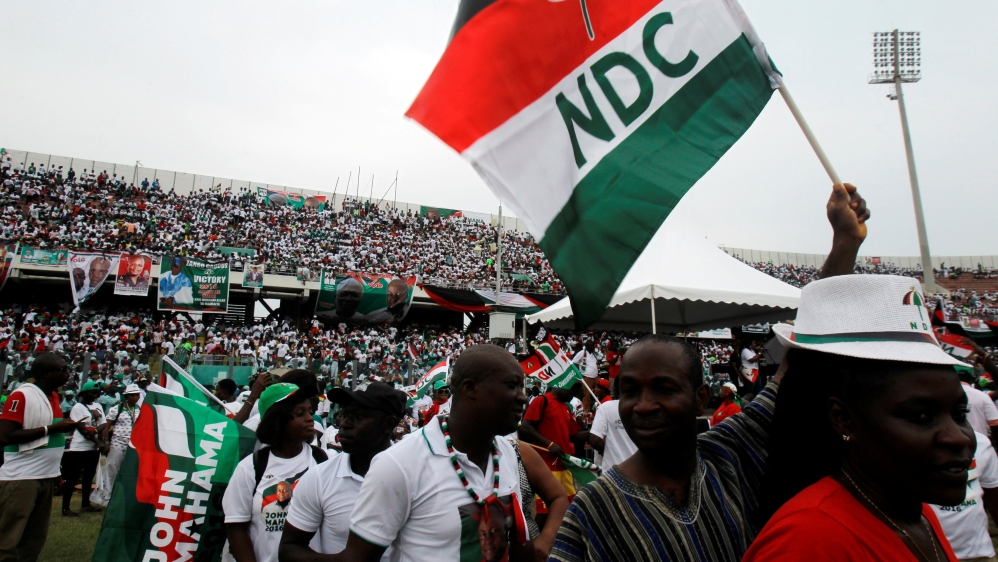Mr. Alan Kwadwo Kyerematen has put forward 15 pillars which would anchor his Great Transformational Plan (GTP), which he said will “significantly deal with poverty, and bring prosperity” to Ghana.
In declaring his intention to contest the 2024 general elections as an Independent candidate on September 5, the aspirant observed that Ghana is at a crossroad and the dynamics of the time requires a transformational leader.
“I believe that I am the leader for this time,” he declared as he also announced his resignation from the New Patriotic Party which he served as a Trade and Industry Minister.
The pillars of his GTP are:
1. Building a strong macroeconomic environment which will be characterized by a stable currency, low inflation, sustainable debt levels, revenue optimization, tight expenditure control, low competitive interest rates, strong external reserves, backed by high levels of liquidity to support the financial sector.
2. Introduce a New Agricultural Revolution (NAR) for Ghana, which will first take advantage of both local, regional and global markets; Secondly, be driven by technology, innovation and cutting-edge research; Thirdly, optimize value for farmers through value chains; and fourthly promote economies of scale through large scale commercial farming.
3. Promoting Industrial Transformation through value addition and the establishment of strategic anchor industries to diversify the Ghanaian economy. This will also involve the establishment of Industrial Parks and Special Economic Zones, as well as the aggressive promotion of Small and Medium Scale enterprise development.
4. Accelerated Infrastructure Development: Promoting Private sector financing for public infrastructure such as Roads, Railways, Ports and Harbours, Water Supply Systems, Public Housing etc. This will reduce Government’s exposure to the financing of such infrastructure projects.
5. Digital Mainstreaming: Mainstreaming digitalization in all Government and Public sector activities, and bringing digital technologies to the doorstep of the ordinary Ghanaian.
6. Energy Security and Diversification: placing greater emphasis on the development of renewable sources of energy, including but not limited to nuclear and hydrogen energy. This will require fast-tracking the execution of Government’s energy transition strategy.
7. Health: Expanding Health infrastructure and services by enhancing private sector participation in health service delivery across the country, as well improving the viability of the National Health Insurance Scheme.
8. Education: Undertaking a comprehensive review of existing reforms in the educational sector, particularly the Free SHS programme to ensure optimum efficiency and effectiveness in its implementation. Government will pay special attention to institutionalizing the link between industry, academia and educational institutions, and reinforce the importance of apprenticeship and internship. Considering the critical importance of early childhood development, a major thrust of Government’s new interventions in the educational sector, will be to improve basic education in all its form and nature, including but not limited to physical infrastructure, learning facilities, teacher training and curriculum development.
9. Tourism: Encouraging private sector investments in the development of world class tourism infrastructure, and also taking steps to leverage the tourism potential in each district and region of Ghana. In addition, my Government will facilitate air travel for tourists coming into the country by providing free visas including Visas on arrival. Finally, the development of the creative industry in Ghana will be the backbone of the new reforms in the tourism industry. This will include but not be limited to impactful reforms in the following creative industries; Film, Dance, Theatre, Music, Literature and Multimedia Arts.
10. Natural Resource Management: Developing and implementing a comprehensive programme for the management of Ghana’s Natural resources. This will include but not be limited to Oil & Gas; Solid Minerals; Water & Marine resources; and Land and Forest resources. As a target, there shall be no export of raw materials from Ghana in any form or nature, without a minimum of 60% value addition by the year 2030. This will usher in Ghana’s decade of industrial transformation, spanning the year 2025 to 2035.
11. Decarbonization and Climate Resilience: Scaling up Government’s current efforts at reducing Ghana’s carbon footprints and facilitating access to the carbon trading markets, as well as establishing mechanisms to strengthen the country’s preparedness against the negative effects of climate change and climate variability.
12. National Security and Defence Optimization: Deploying resources to strengthen National Security and Defence Mechanisms and Infrastructure, to deal substantively with emerging security threats and challenges, particularly in the Sahalian region.
13. Downsizing Government: Overhauling the architecture of the public service in Ghana by consolidating some existing Ministries, Departments, and Agencies. This will lead to a lean Government structure that will ensure operational efficiency and effectiveness in the delivery of Government services, and also reduce cost to the National Budget.
14. Strategic Engagement with the International Community: Restructuring Ghana’s diplomatic and economic relations with the International Community, based on the principle of ‘positive neutrality’, with a focus on promoting the strategic interests of Ghana, as well as our shared commitment to humanity and the preservation of peace around the world.
15. Sports: Investing in world class new generation sports facilities in selected competitive sporting disciplines. In this regard, Government will encourage the participation of the private sector in the development of sports infrastructure around the country, including sports academies.
The Great Transformational Plan will provide “Jobs for the People, Cash for the People.”

















